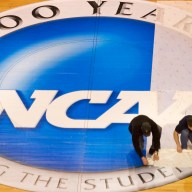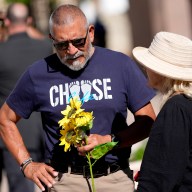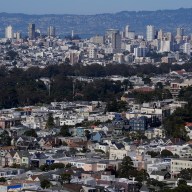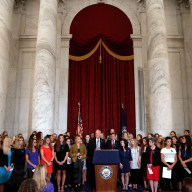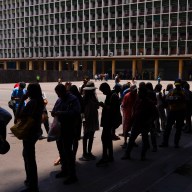OTTAWA – If there was a chill in relations between the Conservative government and Beijing before, you’d never know it by the blast of warmth that filled the room as Prime Minister Stephen Harper met Tuesday with the Chinese foreign minister.
The two men posed for cameras and earnestly talked about the importance of expanding links between the two countries.
Three waves of cameras entered the Prime Minister’s Office to capture the moment, and Harper made sure they all heard him tell Yang Jeichi to convey his regards to Chinese President Hu Jintao.
“Your visit here is very useful, we really appreciate it,” Harper told Yang.
Yang was equally effusive. His trip to Canada was organized hastily, and viewed by observers as an important sign of a rapprochement.
“I’m glad to see that trade between us has grown and our two economies are really cut out for each other,” Yang said in impeccable English.
“There’s large room for further expansion to the benefit of both sides. We need to work together to cope with the spreading international financial crisis.”
Said Harper: “We also need to be very outspoken advocates against protectionism and help trade grow during times like these.”
A spokesman for Harper would not provide information on the ensuing discussions between the two men, including any details of a potential trip to China in the fall.
Yang also met with Liberal Leader Michael Ignatieff on Tuesday, gaining the kind of access to top Canadian politicians that is usually reserved for heads of state.
Yang later delivered a major speech to the Canada-China Business Council, in which he continued to speak favourably about bilateral relations. Finance Minister Jim Flaherty, Transport Minister John Baird and former prime minister Joe Clark attended.
Relations between Ottawa and Beijing had been seriously strained when the Conservatives came to power in 2006, following a series of statements and policy moves that rankled the Chinese.
Tibet’s spiritual leader the Dalai Lama had been named an honorary Canadian citizen, Canada was actively protesting the imprisonment of Chinese-Canadian Huseyin Celil, and Harper used remarkably strong language in referring to his concern over human rights in China.
“I don’t think Canadians want us to sell out important Canadian values,” Harper said, after a potential meeting with Jintao in November 2006 had suddenly fallen through.
“They don’t want us to sell out to the almighty dollar.”
Business leaders began to sound the alarm over lost trade and investment opportunities between Canada and the economic behemoth.
But Harper has taken steps over the past year to mend fences. He recently sent two senior ministers – Stockwell Day and Lawrence Cannon – on high-profile trips to China, and reached out to Hu at last year’s Asia-Pacific Economic Partnership (APEC) summit in Japan.
Yang underlined the significance of that meeting.
“Your meeting with our president in Japan set the tone for our relations and both sides reached a consensus on furthering this relationship that’s very good,” he said.
At the same time, China was also working to repair the relationship.
Ming Pao, a Chinese-language newspaper, reported this week that China’s former top diplomat in Canada had been dispatched last fall to try to sway the Conservative government’s views.
Mei Ping said he had met with business groups, media outlets and opposition politicians to try to emphasize the importance of a positive China-Canada relationship.


